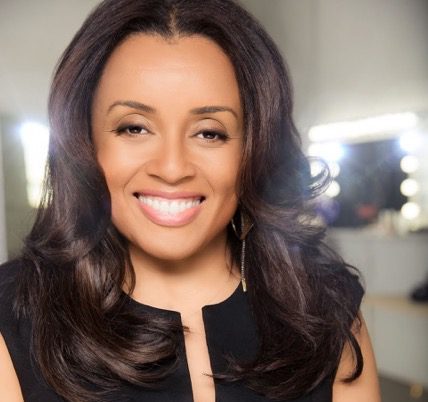Even if you don’t recognize Erica Shelton Kodish’s name, you’ve likely heard of the shows she’s written for: “CSI: New York,” “Cold Case,” and “The Good Wife.” She later became showrunner of BET’s “Being Mary Jane.”
Erica will speak during the second general session of Honors Institute 2019, June 10-14 at San Diego State University. Her presentation will be a conversation with Honors Program Council member Dr. Rosie Banks and will focus on breaking into a transforming world of television entertainment.
A Detroit native, Erica attended Northwestern University. She received the Courtney and Stephen J. Ross Fellowship at the University of Southern California (USC). Get to know her in this brief Q&A.
How did you break into the entertainment industry?
After receiving a graduate degree in screenwriting from USC, I faced the same challenges all aspiring writers face, the old “catch-22.” I needed an agent to land a writing job on a television show, but I couldn’t get an agent because I didn’t already have a job.
I’d been told that being a writers’ assistant on a show sometimes led to an opportunity to write a script. I’d, then, have a bona fide “television credit.” The only problem was I couldn’t get a writers’ assistant position. I wasn’t even sure where to search for these jobs. It’s somewhat easier now because jobs are often posted on websites and social media.
I was able to land a job as an assistant to a director who produced and directed television series and films. That’s where I learned how the industry truly worked. The job was demanding. I managed the office and brought home scripts to read on the weekend. The problem was if I wanted to be a TV writer, I had to have samples of my writing to show. I had to write scripts! This meant I spent a number of Saturday nights staying home to write.
I, eventually, left my position and started temping so that I had more time to work on my craft, but by then I had a forged a solid relationship with the director for whom I’d worked. When I had a few strong scripts under my belt, he called agents and basically pressured them to read me. Thanks to his efforts, I signed with an agent. That agent submitted one of my scripts to the creator of CSI, Anthony Zuiker. At that time, Zuiker was hiring writers for the series “CSI: New York” and offered me a writers’ assistant position with a guaranteed script. I’d finally landed a writers’ assistant position! I went to co-write two scripts the first season.
Is writing/producing for the entertainment industry anything like you thought it would be?
Because I’d gone to film school and worked as an assistant, I had a pretty good idea of what to expect when I became a television writer, but I was naïve when it came to the politics of the business. You’re working on a creative endeavor, but you still have to find a way to navigate the various personalities, agendas, and egos.
Describe some of the differences between being a writer/producer and being a showrunner:
When you’re a writer/producer on a television show, your primary goal is to bring the showrunner’s vision to life. The showrunner is the one that must come up with a vision. He or she must communicate that vision to the writers, actors, and everyone involved in the project. They must steer ideas in the right direction and manage the people working on the show. It’s both a creative and managerial position. A showrunner is often in charge of a production employing 100-200 people.
How has the entertainment industry changed since you began your career?
The big change is that original content is being created by so many different sources like Netflix, Amazon, Apple, YouTube. These opportunities didn’t exist when I first began. It’s also made it more difficult for shows to stand out. With so many options, stellar shows can get lost in the crowd.
What challenges have you faced as a woman in the entertainment industry, and how did you overcome them?
I was one of two women in the writers’ room or the only person of color, and it was sometimes difficult to be heard. A few of the men would talk over women, or our ideas wouldn’t be given as much consideration. It’s easy to shrink in those situations and lose confidence. I’m haunted by those times I allowed others’ low expectations of me to undermine my performance.
What saved me were the female friendships I’d forged with other women writers, starting with the young women on the CSI franchise. It was an extremely competitive environment, and yet, we stuck together. We understood that we were stronger together. We consoled, encouraged, and inspired one another to keep at it. I also forged bonds with women of color in the industry. We shared the similar struggles and did our best to look out for one another. That’s something that continues to this day.
What are your hopes for the future of your industry?
I hope we continue to see fresh, diverse voices in television and film. I also would like to see more women and people of color running shows.
When considering your work, what are you most proud of?
I’m incredibly proud that I led a writers’ room on the show “Being Mary Jane” that writers enjoyed working in. Running a show is stressful. Showrunners are under a lot of pressure. The pressure can come from the network, the actors, the producers. That said, getting to work with other creative people and share ideas is a lot of fun. It’s one of the reasons I wanted to become a writer.
What are you most passionate about?
I’m most passionate about the next great idea. With each script, you get a chance to create a new world, share stories that explore the human condition, and reach others. You also get yet another chance to hone your craft.
What advice do you have for aspiring entertainment writers?
Read the work of screenwriters you admire. Study. Hone your craft. And most importantly, persist.




